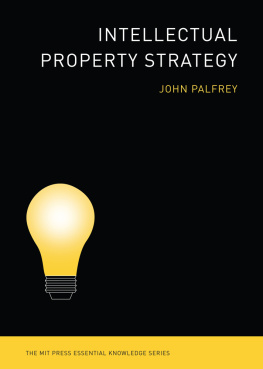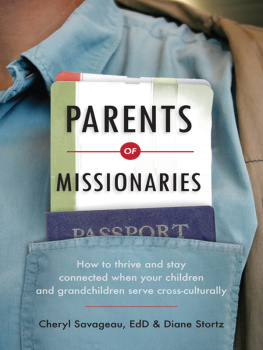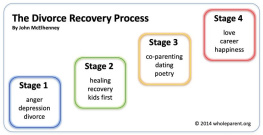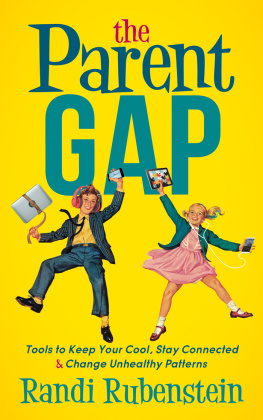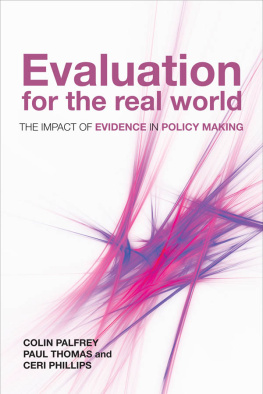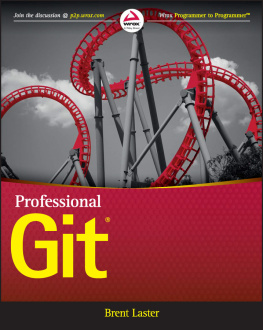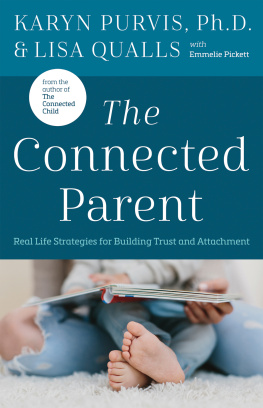John Palfrey - The Connected Parent
Here you can read online John Palfrey - The Connected Parent full text of the book (entire story) in english for free. Download pdf and epub, get meaning, cover and reviews about this ebook. year: 2020, genre: Children. Description of the work, (preface) as well as reviews are available. Best literature library LitArk.com created for fans of good reading and offers a wide selection of genres:
Romance novel
Science fiction
Adventure
Detective
Science
History
Home and family
Prose
Art
Politics
Computer
Non-fiction
Religion
Business
Children
Humor
Choose a favorite category and find really read worthwhile books. Enjoy immersion in the world of imagination, feel the emotions of the characters or learn something new for yourself, make an fascinating discovery.

- Book:The Connected Parent
- Author:
- Genre:
- Year:2020
- Rating:5 / 5
- Favourites:Add to favourites
- Your mark:
- 100
- 1
- 2
- 3
- 4
- 5
The Connected Parent: summary, description and annotation
We offer to read an annotation, description, summary or preface (depends on what the author of the book "The Connected Parent" wrote himself). If you haven't found the necessary information about the book — write in the comments, we will try to find it.
The Connected Parent — read online for free the complete book (whole text) full work
Below is the text of the book, divided by pages. System saving the place of the last page read, allows you to conveniently read the book "The Connected Parent" online for free, without having to search again every time where you left off. Put a bookmark, and you can go to the page where you finished reading at any time.
Font size:
Interval:
Bookmark:
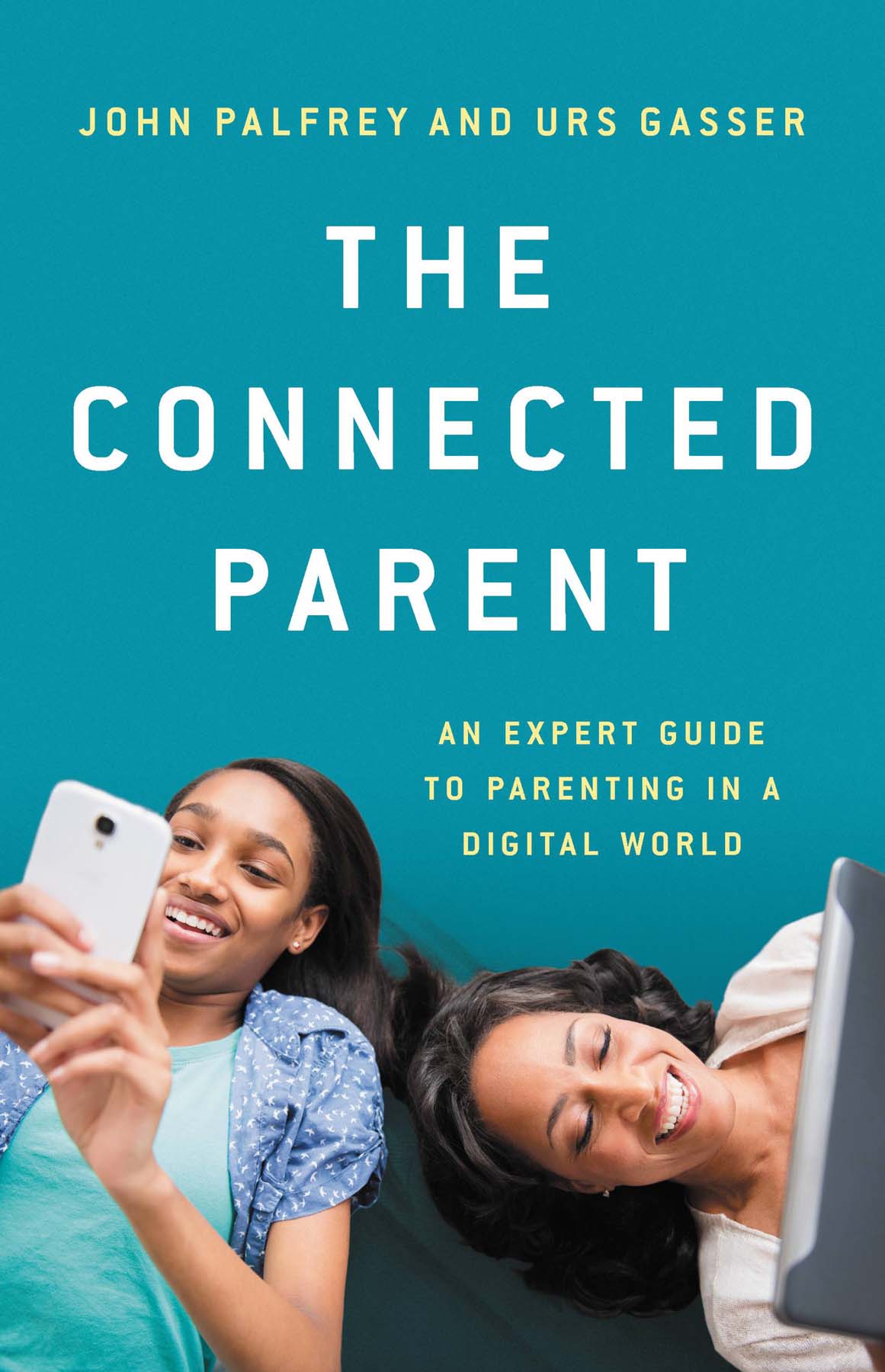
Copyright 2020 by John Palfrey and Urs Gasser
Cover design by Ann Kirchner
Cover image copyright GI / Jamie Grill via Getty Images
Cover copyright 2020 by Hachette Book Group, Inc.
Hachette Book Group supports the right to free expression and the value of copyright. The purpose of copyright is to encourage writers and artists to produce the creative works that enrich our culture.
The scanning, uploading, and distribution of this book without permission is a theft of the authors intellectual property. If you would like permission to use material from the book (other than for review purposes), please contact permissions@hbgusa.com. Thank you for your support of the authors rights.
Basic Books
Hachette Book Group
1290 Avenue of the Americas, New York, NY 10104
www.basicbooks.com
First ebook edition: December 2020
Published by Basic Books, an imprint of Perseus Books, LLC, a subsidiary of Hachette Book Group, Inc. The Basic Books name and logo is a trademark of the Hachette Book Group.
The Hachette Speakers Bureau provides a wide range of authors for speaking events. To find out more, go to www.hachettespeakersbureau.com or call (866) 376-6591.
The publisher is not responsible for websites (or their content) that are not owned by the publisher.
Library of Congress Cataloging-in-Publication Data
Names: Palfrey, John G. (John Gorham), 1972 author. | Gasser, Urs, author.
Title: The connected parent : an expert guide to parenting in a digital world / John Palfrey and Urs Gasser.
Description: First edition. | New York : Basic Books, [2020] | Includes bibliographical references and index.
Identifiers: LCCN 2020014346 |ISBN 9781541618022 (hardcover) | ISBN 9781541618008 (ebook)
Subjects: LCSH: Internet and children. | Internet and teenagers. | Parenting. | Parent and child. | InternetSocial aspects.
Classification: LCC HQ784.I58 P33 2020 | DDC 004.67/8083dc23
LC record available at https://lccn.loc.gov/2020014346
ISBNs: 978-1-5416-1802-2 (hardcover), 978-1-5416-1800-8 (ebook)
E3-20200828-JV-NF-ORI
For the quite wonderful parents and grandparents in our lives and the lives of our children
Explore book giveaways, sneak peeks, deals, and more.

O NE S ATURDAY MORNING , Matthew comes home after a sleepover party celebrating his friend Alexs twelfth birthday. Once Matthew has thrown down his coat and sleeping bag in the kitchen, his mom greets him and asks, Whatd you guys do at the party?
Oh, you know, we stayed up late playing video games, Matthew says.
His mom doesnt let that go. How late were you up?
I dont know late.
She follows up. What games?
You know the usual. Mostly Call of Duty.
You do anything else? his mom asks.
Matthew replies, Yeah, well, we watched a movie.
Did you guys talk to one another? she asks. She knows she is starting to push her luck asking so many questions of her twelve-year-old son, but she is anxious to know the answers.
Well, we texted a bunch, in-game, Matthew says, impatience creeping into his voice.
While the movie was going on?
Matthew looks at her funny. Yeah, kind of, always.
Didnt you do anything else?
Not really, he says. We ate. They ordered pizza. Before you ask: it was pepperoni. Okay?
His mom laughs. Youre right. I was going to ask what kind of toppings. Okay, well, be sure to get some sleep tonight.
Later, Matthews mom is on the phone with Alexs mom. As they discuss the prior evening, they figure out that the entire party, from the 5:00 p.m. arrival time through the eleven oclock departure the next morningminus a few hours of sleep in the wee hourswas spent on the boys devices. The kids at the party are all well behaved, do well in school, and have strong friendships. But as their parents cant help but see, their kids experience of childhood is highly mediated by digital devices.
Nothing seems to be going wrong for Matthew or Alexand the boys certainly arent bothered. Should their parents be worried?
Y OUNG PEOPLE ARE growing up in a world that is significantly different from the one that most of their parents experienced during childhood. Even compared with the time when millennial parents were growing up, the world is more complex, more interconnected, and faster-paced.
Technology is a key driver of these changes. Today, virtually all children in well-off societies are growing up with a phone in their hand, access to much of recorded knowledge at their fingertips, and a whole lot of questions in front of them about what life will be like. While there are exceptionsthe children from low-income families or from remote areas may lead a more analog-oriented, less digital lifethe lives of children are increasingly mediated by digital devices around the world.
We have written this book for parents who wonder what they should do about the role of technology in the lives of their children. Parents today are facing urgent new questions: How much time should kids be allowed to spend staring into screens? At what age should we let them have their own social media accounts? What about playing video gameshow much is too much? How can we keep them safe from harm online? Are our children going to grow up less socially able if theyve had their nose in a screen for too much of their childhood?
We address these common fears in this book, but we also want to illuminate the possible benefits young people can gain from their use of new media and technologies. We take up these topics and offer advice in a simple, straightforward way that is nevertheless grounded in the most reliable research.
You might wonder why you shouldnt just google an answer for each of these questions as they arise instead of reading an entire book. After all, you can find plenty of advice online about how to handle every parenting question, especially when it comes to technology and kids. Some of that advice is very good. There are some terrific blogs and websites out there. We read Sonia Livingstones Parenting for a Digital Future blog regularly, for instance. We are devotees of the Family Online Safety Institutes guidance as well as much of what Common Sense Media and the American Academy of Pediatrics offers parents. We will point you to many of these excellent resources and others that we have found to be reliable over time. They are all easy to find online.
Through this book, we offer two main benefits that you just cant get from googling. First, we share parenting suggestions that are grounded in the best research about kids and technologythe best research weve been able to find, be it our own research or that of others. We have been studying this topic for years, since long before social media became a thing. And second, we offer these suggestions in the context of a consistent philosophy about raising children in this digital age. We call this philosophy connected parenting. While you might not always agree with us on each topic, you will always know where we are coming from and why.
We approach this topic as researchers, educators, and parents. For more than a decade and a half, we have been researching kids and technology. Together, we have co-led a series of research projects through the Youth and Media Lab at the Berkman Klein Center for Internet & Society at Harvard University. We have overseen research centers on technology in the United States and in Switzerland. We have taught high school, college, and graduate students. John has been the principal of a residential high school (Phillips Academy in Andover, Massachusetts) with more than a thousand students from every state and from dozens of countries around the world. And in what we consider our most important role, each of us is the parent of two kids, all of whom are now in their teenage years.
Font size:
Interval:
Bookmark:
Similar books «The Connected Parent»
Look at similar books to The Connected Parent. We have selected literature similar in name and meaning in the hope of providing readers with more options to find new, interesting, not yet read works.
Discussion, reviews of the book The Connected Parent and just readers' own opinions. Leave your comments, write what you think about the work, its meaning or the main characters. Specify what exactly you liked and what you didn't like, and why you think so.



